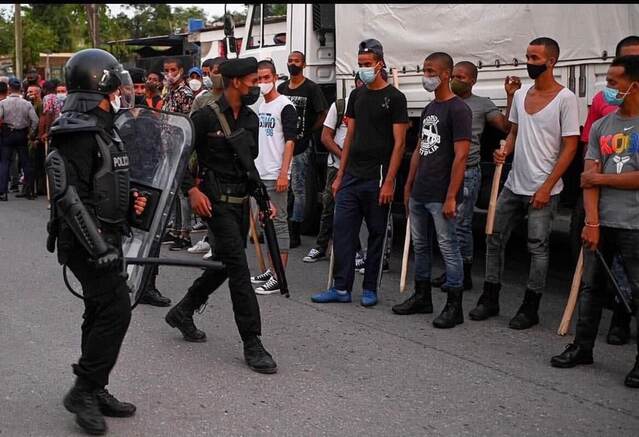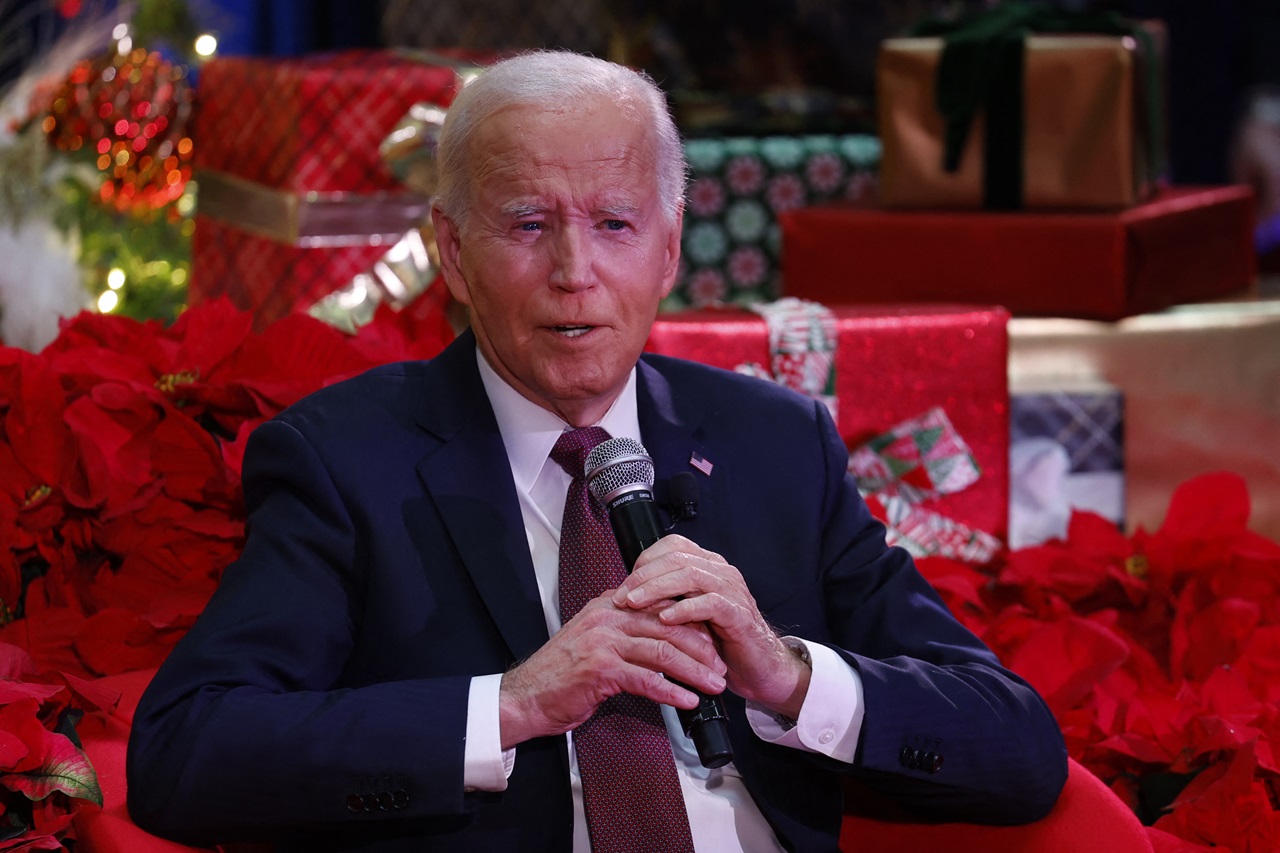
Cuba’s children political prisoners: Five keys to understand what's happening
Under accusations of vandalism, several minors have been placed under arrest and could face long prison sentences.
Accused of having carried out acts of vandalism during the protest day of July 11 in Cuba, known as 11J, an undetermined number of people, including several minors, have been detained by Cuban authorities to be prosecuted for various crimes.
⚖ ¿Cuál es la situación legal de l@s menores de 18 años después del estallido social del #11J y la Jornada Cívica por el Cambio del #15NCuba?@UNICEF @UNICEFCuba @RELE_CIDH @JMVivancoHRW @ONU_es a continuación una relación de menores de edad encarcelados por motivos políticos. pic.twitter.com/j7qmrL8yOC
— @Justicia11J Detenciones por motivos políticos (@justicia11j) November 19, 2021
Here are five things to understand why children are in prison and could face long sentences.
What are they accused of?
The Cuban Government says the individuals carried out “vandalism with the deliberate purpose of subverting the constitutional order of the socialist State,” accusations that both relatives of those involved and different activist groups reject amid complaints of abuse of force and state violence.
According to statements delivered by family members of the detainees to the German network DW, the only thing they did was shout slogans such as "down with the dictatorship" and respond to police attacks.
“My son is not a criminal, he did not kill anyone, he just went out to ask for freedom and that is a right of every person,” said the mother of a young provincial wrestling champion who was arrested.
Public disorder, incitement to commit a crime, robbery with force and violence, attack, sabotage and sedition are the crimes many are being charged with, establishing sentences according to the level of violence of their acts, disturbance of public order, as well as “the deliberate purpose of subverting the constitutional order of the island.”
The Attorney General's Office claims that 21% of the people who remain detained for the "riots" on July 11 in Cuba, as the Government of Miguel Díaz-Canel calls them, have a criminal record.
Información sobre los procesos penales derivados de los disturbios del 11 de julio de 2021 https://t.co/B6pZ5isNug
— Fiscalía de Cuba (@FGR_Cuba) January 25, 2022
Who are the minors?
The Prosecutor's Office, through a statement, indicates that out of 790 people “instructed to charge for acts of vandalism,” 710 have already been brought before the courts to receive a sentence. Nearly 70% are in pretrial detention. Among these, 28 minors stand out, whose ages range from 16 to 18 years old, and who are part of a total of 55 young people, mostly from marginalized neighborhoods with few resources.
The activist organization Justice 11J said that the figure is far from reality, placing the number of detainees at more than 1,300. They have also claimed that there are 12-year-olds among the detained.

Official data also recognizes the inclusion of 27 minors under 16 years of age going through legal procedures. For not being subject to criminal law according to Cuban law, 10 were sent to what the State calls schools for comprehensive training and behavior, while 17 must receive individualized attention in their schools.
According to Justice 11J, most of the minors are confined in the Penitentiary Establishment for Young People of the West, in Havana.
Political prisoners?
Sedition, a charge with high political implications, is the most common charge among those detained.
RELATED CONTENT

Cubalex, another organization defending the rights of Cubans, stressed the importance of speaking of “child political prisoners,” since minors under 18 are accused of committing crimes against the State. This goes against the Convention on the Rights of the Child, which establishes 18 years as the age when someone is no longer considered a minor. The island abides by the same convention.
Other complaints are aimed at the exclusion of parents from these legal processes, many of them extrajudicial, and acts of institutional forced disappearance, as several of them were detained without their families being provided with any information.
Sentences
Out of the three trials that have been carried out, all against girls, two were sentenced to between eight months and one year, which they will pay with correctional work or limitation of freedom without imprisonment. The third girl was acquitted.
The recommendation of the Cuban justice system urges to reduce the sentences directed at those under 18 years of age by half, as well as by a third those against those under 20.
Out of the 17 minors tried in recent weeks, 13 with charges of sedition, none have received a final sentence.
Listado actualizado de las detenciones y procesos contra manifestantes del #11J.
— Cubalex (@CubalexDDHH) February 8, 2022
Ayúdanos a mostrar la represión pic.twitter.com/bspAwn4htr
Defense for the minors
While the lawyers insist that the minors acted using their right to legitimate defense against the violence exerted by state authorities, the outlook is not great at the moment.
They question not only the severity of the sentences and the conditions in which the arrests and trials have been carried out, but also the inadequacy of prisons and re-education centers to adequately treat the young people, some who will remain forever under the shadow of prison.











LEAVE A COMMENT:
Join the discussion! Leave a comment.